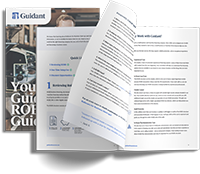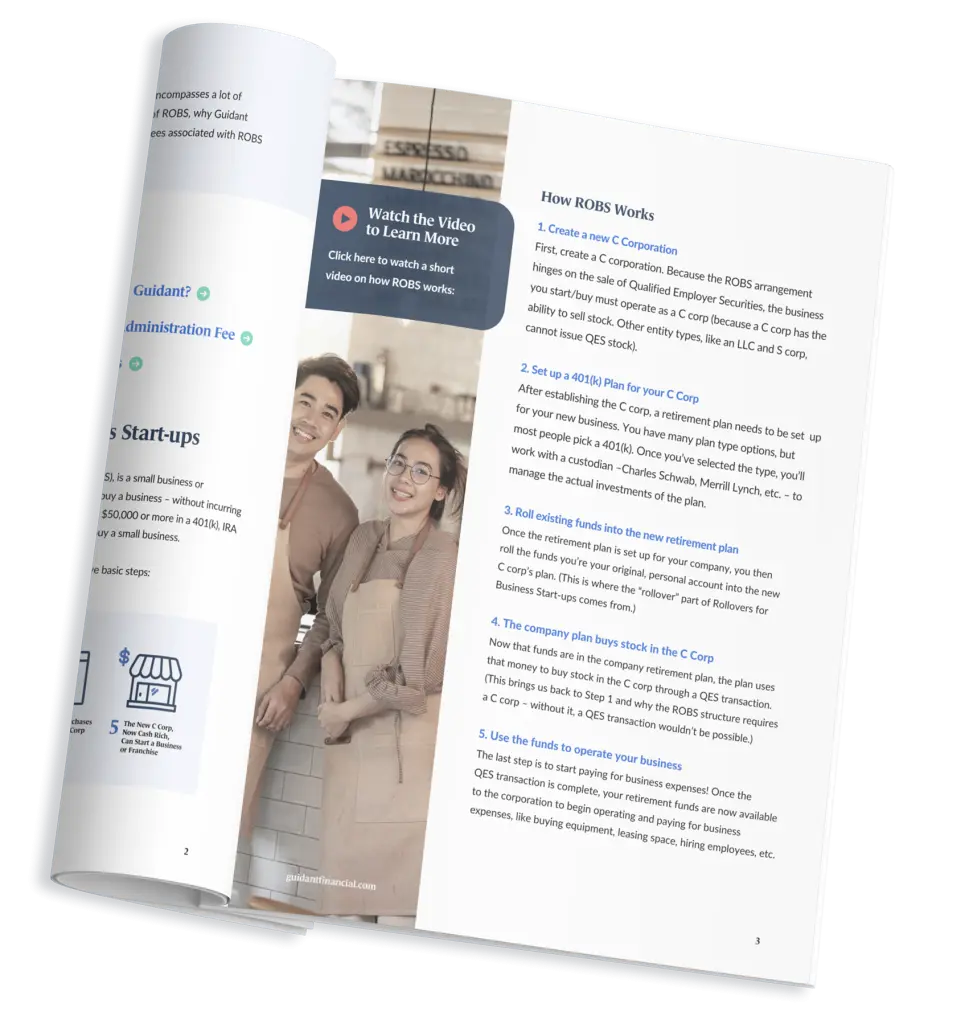This series takes an in-depth look at what an Employer Identification Number (EIN) is and why it matters so much to entrepreneurs. We will also cover what it takes to file for an EIN and the key differences between EINs and Taxpayer Identification Numbers (TINs).
What is an EIN?
An employer identification number (EIN) is a federal tax identification number. An EIN is issued by the IRS to identify a business entity. It’s basically a corporate version of a social security number (SSN), only less sensitive. More about that in a moment.
Entities like corporations, LLCs, sole proprietors, and more may use an EIN for multiple purposes. EINs allow entrepreneurs to open up business banking accounts, pay federal taxes, fill out payroll reports, and hire employees. As a bonus, once an EIN has been issued to a business it does not expire. Keep in mind, however, that once it has been issued it will not be reissued again.
How is an EIN Formatted?
EINs have a lot in common with SSNs. They are a unique number that is nine digits long and, as mentioned, is less sensitive to use on documents than an SSN. Businesses are legally required to identify their companies with either an SSN or EIN and many choose to use their EIN.
Why do entrepreneurs use an EIN to identify their business? EINs act as a safeguard. It is less sensitive than an SSN. Those who would rather use extra precautions against having their personal identity stolen may file for and obtain an EIN. However, be mindful that an EIN still works to protect personal information. Don’t write it just anywhere or leave the number laying around for everyone to see. Take care of this number as much as you would an SSN when using it on official documents and paperwork.
Why Should I Have an EIN?
This is my favorite part of the article because I get to list off all of the benefits that come with obtaining an EIN for a business! If you’re on the fence about filing for an EIN, these reasons might persuade you to get started.
9 Reasons to Have an EIN
- You’re opening a business bank account. If so, you’ll need to file for an EIN. This is generally a requirement from most banks before bank accounts may be opened under a business name.
- You’re establishing a credit profile. Your business credit profile is separate from that of the entity’s owners or members.
- You’re forming an LLC or corporation. If you incorporated the business as an LLC, partnership, or corporation, it is advised that you obtain an EIN. This includes partnerships, where there are at least two people involved with the business and both may not use their SSNs simultaneously to identify the company.
- You’re hiring employees. This is a requirement before a business may hire, or plans to hire, employees. What if you don’t plan to hire employees? Technically, you count as an ‘employee’ once the business has been incorporated. As such, an EIN becomes crucial so that the IRS may track your business and ensure that it remains in compliance. This includes collecting payroll tax and, for some corporations, its own tax.
- You’re planning to change your organization type. Let’s use the example that you initially incorporated your business as a sole proprietorship. Later on, you decide to switch to another entity, like a partnership. You would need to have an EIN because the ownership of your organization has changed.
- You’re establishing pension, profit sharing, and/or retirement plans. You are considered to be a plan administrator if you are creating these types of plans.
- You’re filing employment, excise, alcohol, tobacco, or firearm taxes.
- You’re withholding income tax to a non-resident alien. A non-resident alien may be an individual, corporation, or partnership.
- You’re filing annual tax returns.
Does an EIN Matter More to Certain Entities Over Others?
There are some entities that require EINs and others that do not. Entities like sole proprietorships may use their SSN instead of obtaining an EIN while the IRS advises limited liability companies (LLCs) to file for an EIN. This is particularly necessary if the LLC has hired employees or must file excise tax forms.
The rules change subtly for single-member LLCs. A single-member LLC classified as a disregarded entity may use the owner’s SSN or EIN for information returns and reporting related to income tax. However, if a single-member classified as a disregarded entity has no employees or excise tax liability, they do not need to obtain an EIN. Instead, they may use single-member owner’s name and TIN for taxes.
What about C corporations? Perhaps it was not always a rule that C corporations needed EINs in the past, but that has changed. Current tax laws mandate that C Corporations are required to file for and obtain EINs. It’s necessary for C Corporations to have this type of identifier, as their entity conducts business by way of opening business bank accounts, establishing its own credit profile, and hiring employees.
What Should I Do Before Applying for an EIN?
Before you begin and submit an EIN application, it is advised that you understand whether or not your business is eligible for an EIN. Check these eligibility items off of your list.
- Is your principal business located in the United States or U.S. territories? If so, you may apply for an EIN.
- Do you have a valid taxpayer identification number? If not an EIN, this may be a social security number (SSN) or individual taxpayer identification number (ITIN).
- Is your company legally formed? If yes, great! Go ahead and begin the application process. If not, it is strongly advised that you do not apply for an EIN. The IRS presumes that organizations filing for EINs have been legally formed — and those that have not are subject to automatic revocation of their tax-exempt status.
Ready to learn more about becoming a small business owner? Read our Complete Guide to Becoming a Small Business Owner.
How Many EINs Can I Apply For?
The IRS has set a daily limitation to the number of EINs that may be issued out. This rule went into effect on May 21, 2012 and limits applications to one EIN per responsible party per day. Not sure who qualifies as a responsible party? This is term from the IRS given to an individual or entity that controls, manages, or directs the applicant entity and its disposition of its funds and assets.
Is It Expensive to Apply for An EIN?
Not at all! You may apply with the IRS using their free service.
How to Begin Applying for An EIN
There are four ways you can file for an EIN — by mail, via fax, on the phone, or online. Let’s break down what applicants need to know about applying through each available option.
Application pro tip! Before you get started, make sure you have obtained Form SS-4. This is an employer identification number application. It must be completely filled out with the required application whether you file through mail, fax, telephone or online.
Apply for EIN by Mail
Applying for an EIN through the mail means submitting Form SS-4 with all required areas filled out to a specific address noted on the IRS’ website.
Currently, if your principal business is located in one of the 50 states or the District of Columbia, the mailing address for U.S. taxpayers is as follows.
Internal Revenue Service
ATTN: EIN Operation
Cincinnati, OH 45999
MyCorp advises checking in on the site regularly to make sure you are mailing the application to the proper point of contact. Once your form has been received in the mail, expect up to four weeks for the EIN application to be processed.
Applying for EIN by Fax
Do you have Form SS-4 fully completed? Great! You may fax the application to the appropriate fax number. According to the IRS, this number for U.S. taxpayers is (855) 641-6935. Remember to include your fax number to ensure that you receive your EIN within four business days. If your fax number is not included, it may take up to two weeks to receive your EIN.
Applying for EIN by Telephone
This option is available for organizations formed outside of the United States or outside of U.S. territories. International applicants may call (267) 941-1099 from 6 a.m. until 11 p.m. EST to obtain their EIN from Monday through Friday. Keep in mind that this is not a toll-free number and that the individual calling must be authorized to receive the EIN.
Applying for EIN Online
Filing for an EIN online tends to be the most popular choice for applicants. Why is that, exactly?
- It’s fast, generally taking no more than 15 minutes from start to finish.
- All entities with a principal business located in the U.S. or U.S. territories may apply online.
- Applying online also means you’ll get your EIN quickly — receiving an online confirmation as soon as you have completed the application process!
However, there are a few rules of the road to be aware of when applying for an EIN online.
Tips for Applying for Your EIN Online
- Before you begin, make sure you have a valid taxpayer identification number on hand. This may be your SSN or ITIN.
- There is no time limit to applying for an EIN online. That being said, do not stay on any one page for more than 15 minutes.. If you do, your session on that page will expire and you will need to apply all over again.
- There is no option available to save your place and return to it later. It is best advised that you set aside time and come prepared with everything you need before applying.. This ensures that you are able to apply for and receive your EIN in one session without repeatedly coming back again and again.
Once your application is completed and submitted, you’ll receive your EIN immediately via email.
What Happens If I Don’t Receive My EIN?
Let’s say that you submitted your application and haven’t gotten anything back. What’s the best course of action to take next, especially with return and deposit deadlines coming up? For returns, the IRS recommends writing “applied for” and the date you applied for an EIN in the space shown for the number.
For deposits, submit your payment to the service center address for your state. This check should be made payable to the Internal Revenue Service and include your name, address, kind of tax, and period covered, along with the date that you applied for the EIN.
What is a Taxpayer Identification Number (TIN)?
As defined by the IRS, a taxpayer identification number (TIN) is an identification number used by the IRS in the administration of tax laws. Other taxpayer identification numbers (TINs) include SSNs, EINs, individual taxpayer identification numbers (ITINs — more about these in a moment), ATINs (taxpayer identification number for pending U.S. adoptions), and PTINs (preparer taxpayer identification numbers).
Why Do I Need a TIN?
A TIN may be furnished on tax-related documents. These include filing your tax returns and claiming treaty benefits. Keep in mind, however, that if the beneficial owner claims an exemption for effectively connected income and certain annuities, and tax treaty benefits, the TIN must be on a withholding certificate.
How to Obtain a TIN
If you don’t already have a TIN, the good news is that it’s a fairly straightforward process to obtaining the number. The IRS includes a step-by-step process for how to get a TIN if you have an SSN, EIN, and ITIN.
Since this is a series about EINs, let’s explore what you need to know about obtaining TINs if you have an EIN. Your EIN, as a quick refresher, is a federal tax identification number. It is issued by the IRS to identify a business entity. An EIN may be used for multiple purposes, such as opening a business bank account and hiring employees. An EIN is also used by estates and trusts on Form 1041 U.S. Income Tax Return for Estates and Trusts. If these estates and trusts have income that is required to be reported, the firm’s EIN and EIN of fiduciary (if a financial institution) must be reported on the paperwork. The trust TIN must also be noted on the same document.
What If I Don’t Have an EIN, But I Want to Obtain a TIN?
For those without an EIN but with an SSN seeking to obtain a TIN, they must complete Form SS-5. This is the application for a Social Security Card from the Social Security Administration. Remember to include substantial evidence of your identity, age, and U.S. citizenship (or lawful alien status). You may find these free forms at your local Social Security office and by downloading Form SS-5 from the Social Security Administration.
Individual Taxpayer Identification Number (ITIN)
Imagine that you are a U.S. resident or nonresident alien. You find yourself in a situation where you must file a U.S. tax return or present that you have a federal tax ID number. However, you don’t have a social security number (SSN) — and are not eligible for one. You would need to apply for an individual taxpayer identification number (ITIN) to be issued out to you by the IRS.
Why Do I Need an ITIN?
An ITIN is a tax processing number. It has a limited number of functions. ITINs largely exist to keep individuals compliant with United States tax laws.
Do any of the following items apply to you? Then, you would need an ITIN.
- You don’t have and are not eligible for an SSN.
- You find yourself in a circumstance where you must present a federal tax ID number.
- You have to file a federal tax return.
- You are a nonresident alien or U.S. resident alien that must file a U.S. tax return. You may also be a dependent or spouse of a U.S. citizen or nonresident alien visa holder, a nonresident alien claiming a tax treaty benefit, or nonresident alien student, professor, or researcher filing a U.S. tax return or claiming an exception.
What Does an ITIN Not Do?
As mentioned above, ITINs really exist as tax processing numbers to keep you in compliance with the tax laws of the United States. It should be noted that having an ITIN does not authorize you to work in the United States. You will also not be eligible for Social Security benefits because you have an ITIN or qualify a dependent for Earned Income Tax Credit Purposes.
Do not let this deter you from obtaining an ITIN! Remember that this number still serves an incredibly important purpose to ensure you file your U.S. tax returns.
EIN and TIN in Review
What’s next for our readers as we come to a close in this series? We highly recommend that shortly after the formation of your small business, entrepreneurs decide to file for an employer identification number (EIN). The best time to file for an EIN, after all, is right after your business has been legally formed. By applying for an EIN, the IRS will assume (correctly, if you are honest about the process!) that your business is already in existence.
You know all of the benefits that come with an EIN and how to obtain one. Now, it’s time to get an EIN for your newly formed startup!
Deborah Sweeney is the CEO of MyCorporation.com which provides online legal filing services for entrepreneurs and businesses, startup bundles that include corporation and LLC formation, registered agent services, DBAs, and trademark and copyright filing services. You can find MyCorporation on Twitter at @MyCorporation.

















